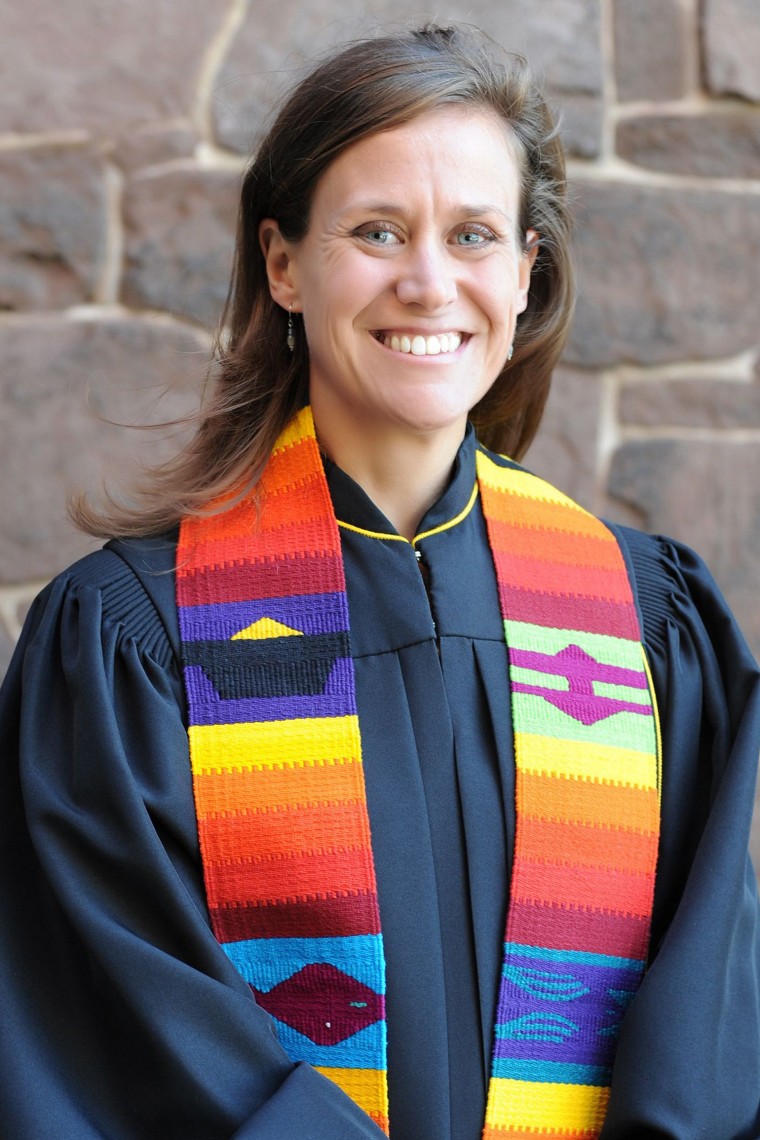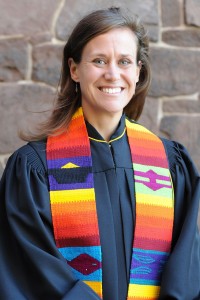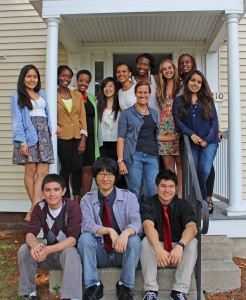As University Protestant Chaplain, Mehr-Muska Mentors, Offers Confidential Support


In this Q&A, meet Tracy Mehr-Muska, Wesleyan’s Protestant chaplain.
Q: Rev. Mehr-Muska, how long have you been Wesleyan’s Protestant chaplain, and what did you do before this?
A: This is my third year as a university chaplain at Wesleyan. Like many, my professional journey was not a direct route. After graduating from the Coast Guard Academy, I served as a Deck Watch Officer in the U.S. Coast Guard. My love of the sea and my degree in Marine/Environmental Science led me to subsequently work as a marine scientist, conducting oceanographic surveys and engineering subsea cable routes for a company that installed transoceanic fiberoptic telecommunications cable. although I loved my job, I felt most deeply fulfilled when attending church, visiting sick or homebound parishioners, or volunteering with the church’s youth. I then transitioned to Princeton Theological Seminary, and after graduating, became an ordained minister in the Presbyterian Church (USA). I served as a chaplain for a hospice program in Boston, where I ministered to people approaching death and to their families. Although I loved hospice chaplaincy, it has been thrilling and fun to now work with people at the other end of their lives—students newly emerging into adulthood who are working to discern their vocational identity and establish their priorities, distinctiveness and values.
Q: Coming from such a different background, what made you want to become a university chaplain?
A: My years at the Coast Guard Academy were immensely challenging personally, physically, and spiritually. The two caring and patient military chaplains who served as my chaplains were not only instrumental in my surviving, thriving, and graduating, but they were also influential in helping me find joy and deepen my faith. I hope and pray that I can likewise be a compassionate caregiver to students who are suffering, a companion to students who are learning and growing in scholarship and life, and a guide to students who are struggling with existential questions of meaning, purpose, vocation, or faith. Wesleyan, in particular, is an amazing place to serve because the students are immensely curious, bright, thoughtful, and motivated. They do not mindlessly accept rote answers from the catechism, but they eagerly explore answers to faith’s most challenging questions with intention and authenticity.
Q: How has your past experience influenced your work here?
A: Personally, my life experience was full of both joy and challenge, of marginalization and inclusion, of success and regret, of doubt and belief, and of wandering and fulfillment. I believe my life experiences help me relate to students who come from a variety of different backgrounds and to students facing a wide array of different challenges and questions. Professionally, my experience as a board certified interfaith chaplain in clinical settings has helped me work comfortably both in crisis situations and in everyday circumstances to address students’ emotional and spiritual needs, regardless of religious affiliation or lack thereof.
Q: Please tell us about your role here at Wesleyan. Is there anything you think would surprise most people to know about what you do?
A: University chaplains wear many hats, including (but not limited to) mentor, cheerleader, religious tutor, celebrant of sacraments, advisor, caregiver, counselor, baker, listener, caterer, theologian, worship leader, and event planner. Officially speaking, the chaplains’ responsibilities include providing pastoral care and counseling, responding to crises, promoting and enabling interfaith conversation and collaboration, developing students’ leadership skills, and providing a unique and important voice on administrative committees. I also facilitate a Sunday fellowship time for students where we read Scripture, pray, engage in an activity or discussion related to the Scripture, and have dinner together. Additionally, I work closely with the Christian program house Lighthouse, and I am the house advisor of Womanist House, where I thoroughly enjoy working with the house manager and other students as they develop programs to help educate the campus about womanist, feminist, and mujerista issues. Finally, I mentor a Divinity student from Yale Divinity School who creatively and caringly serves the Wesleyan community about ten hours each week.

Q: What does a typical day look like for you? What’s your favorite part of your job?
A: Every day is different, and rarely can I anticipate what a day will end up looking like when I arrive in the morning! The favorite part of my day is spending time with students, whether providing distressed students with nonjudgmental pastoral care and support, casually visiting with students over coffee or lunch, or helping my creative student leaders develop and implement plans related to their visions and ministries.
Q: Please describe the role you play in supporting students. What types of issues do you deal with? Do you work only with practicing Protestants, or other students as well?
A: Chaplains are available to provide confidential support and care to religious and non-religious students who are dealing with any issue or concern, regardless of how significant or seemingly trivial. We help students manage challenges related to anxiety and depression, body image, faith questioning, identity, sexual orientation, academic stress, sexual assault, relationship questions, stress related to change and decision making, and interpersonal conflicts. When a student’s need is acute, we help the student connect to and develop relationships with the amazingly caring and well-trained therapists, nurses, and physicians at Counseling and Psychological Services (CAPS) and Davison Health Center. Working with the students, we also liaison with Dean Laura Patey and the Class Deans to provide holistic care to students to help ensure their success academically, athletically, and personally. I am proud to be among the many unique, phenomenal resources available to students on campus.
Q: How would you describe the Protestant community on campus?
A: The Protestant community is AMAZING! It is caring, enthusiastic, compassionate, brilliant, curious, faithful, creative, and fun. I thoroughly enjoy spending time with them and feel bolstered by their enthusiasm and faith. The community is very diverse culturally, ethnically, and theologically, yet all of the students work closely together with a level of wisdom, respect, and grace beyond their years. We also have wonderful faculty and staff that have been extremely supportive and kind, including Persephone Hall from the Career Center, who is serving as the house advisor to Lighthouse (the Christian Program House), and Professor Rick Elphick, who has been a long-time supporter and friend to the Protestant community.
Q: What are some of your goals for this academic year?
A: In addition to fulfilling the responsibilities listed above, one of the primary goals of the Office of Religious and Spiritual Life this year is to help birth and mentor a student Interfaith Council. These students will be responsible for helping build relationships between different faith groups and spiritual communities by facilitating meaningful conversations, developing programs, and promoting interfaith relations. It is through dialogue and engagement that we can grow to better understand and respect one another, and there has been a great deal of interest in this type of collaboration among students. I am very excited to see what will develop.
Q: What do you like to do outside of work?
A: Outside of work, I love biking, kayaking, hiking, swimming, and jogging with my husband and two small children. I also enjoy painting, quilting and reading. I am also slowly working toward my Doctor of Ministry degree from Hartford Seminary, and I am excited to be studying alongside interesting and diverse colleagues while growing intellectually and spiritually.
Q: Is there anything else you’d like the Wesleyan community to know about you?
A: Regardless of people’s religious affiliation or lack thereof, many struggle with spiritual issues including identity, interpersonal connection, vocation, and more. It is a privilege to work with Rabbi David Leipziger Teva in the Office of Religious and Spiritual Life, and our doors are always open for students seeking a safe, confidential place to talk about their lives, challenges, and joys. We are also very open to hearing ideas for programs or events that might be meaningful for the Wesleyan Community and ways in which we can better serve our community’s emotional or spiritual needs. Please stop by! More information can be found here.

